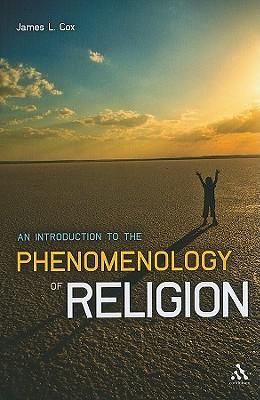
Zustellung: Fr, 01.08. - Do, 07.08.
Versand in 3-4 Wochen
VersandkostenfreiBestellen & in Filiale abholen:
In this thoroughly revised edition, James Cox provides an easily accessible introduction to the phenomenology of religion, which he contends continues as a foundational method for the academic study of religion in the twenty-first century.
After dealing with the problematic issue of defining religion, he describes the historical background to phenomenology by tracing its roots to developments in philosophy and the social sciences in the early twentieth century. The phenomenological method is then outlined as a step-by-step process, which includes a survey of the important classifications of religious behaviour. The author concludes with a discussion of the place of the phenomenology of religion in the current academic climate and argues that it can be aligned with the growing scholarly interest in the cognitive science of religion.
After dealing with the problematic issue of defining religion, he describes the historical background to phenomenology by tracing its roots to developments in philosophy and the social sciences in the early twentieth century. The phenomenological method is then outlined as a step-by-step process, which includes a survey of the important classifications of religious behaviour. The author concludes with a discussion of the place of the phenomenology of religion in the current academic climate and argues that it can be aligned with the growing scholarly interest in the cognitive science of religion.
Inhaltsverzeichnis
Acknowledgements
Preface
1. Defining religion
2. Historical background: Philosophical phenomenology and the social sciences
3. Stages in the phenomenological method
4. The phenomenological method: a case study
5. Myths and rituals
6. Religious practitioners and art
7. Scripture and morality
8. The special case of belief
9. The place of the phenomenology of religion in the current and future academic study of religion
Bibliography
Preface
1. Defining religion
2. Historical background: Philosophical phenomenology and the social sciences
3. Stages in the phenomenological method
4. The phenomenological method: a case study
5. Myths and rituals
6. Religious practitioners and art
7. Scripture and morality
8. The special case of belief
9. The place of the phenomenology of religion in the current and future academic study of religion
Bibliography
Produktdetails
Erscheinungsdatum
10. Februar 2010
Sprache
englisch
Seitenanzahl
200
Autor/Autorin
James Cox
Verlag/Hersteller
Produktart
kartoniert
Gewicht
363 g
Größe (L/B/H)
231/152/15 mm
ISBN
9781441171597
Pressestimmen
"This book provides a lively and authoritative introduction to phenomenological methods for studying religion, written in a clear and lucid style by a leading exponent. Both theoretically alert and practical to use, it is enhanced by the author's extensive experience of teaching and research across three continents." - Steven Sutcliffe, University of Edinburgh, UK
Bewertungen
0 Bewertungen
Es wurden noch keine Bewertungen abgegeben. Schreiben Sie die erste Bewertung zu "An Introduction to the Phenomenology of Religion" und helfen Sie damit anderen bei der Kaufentscheidung.









